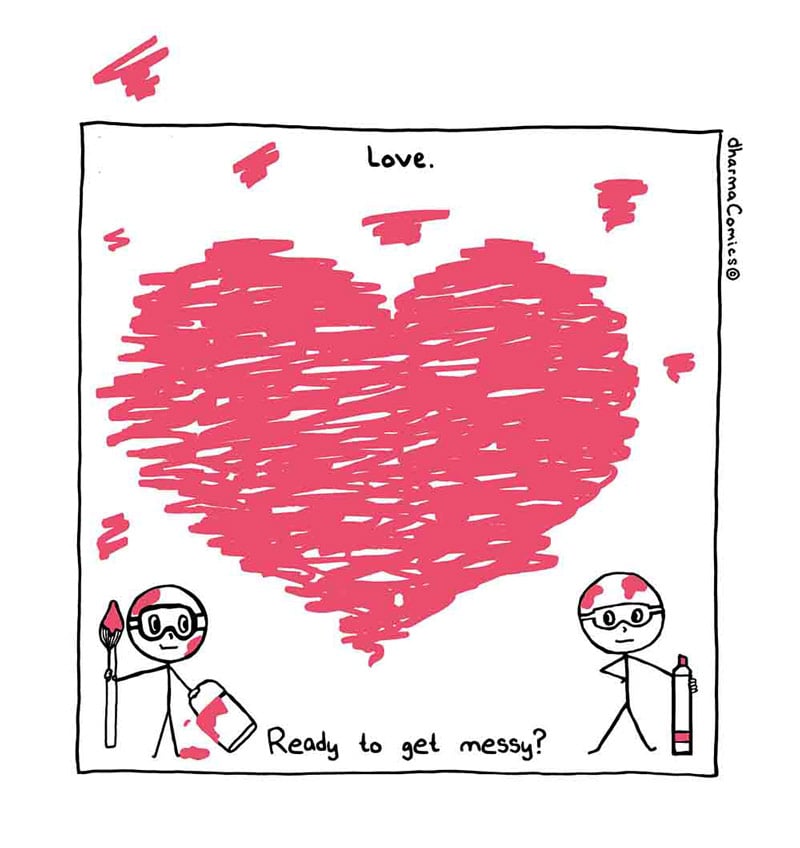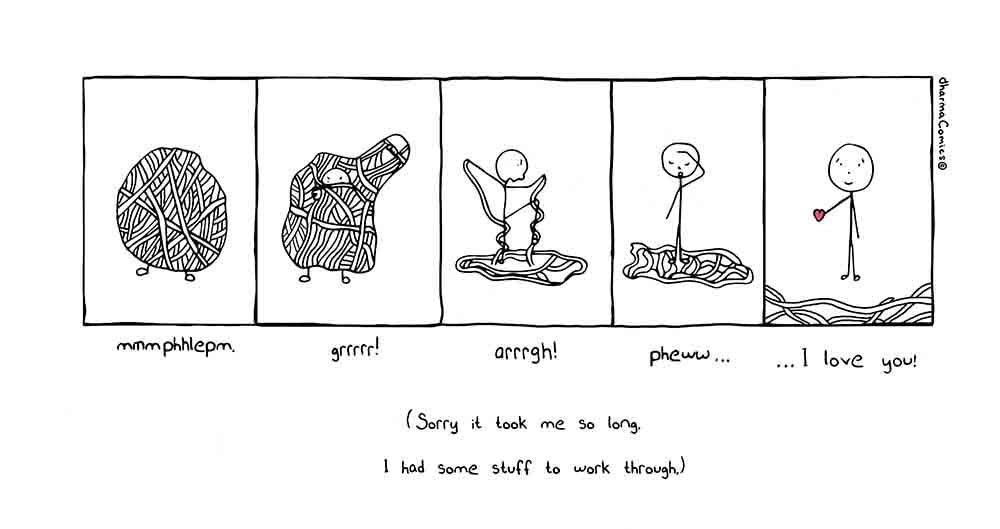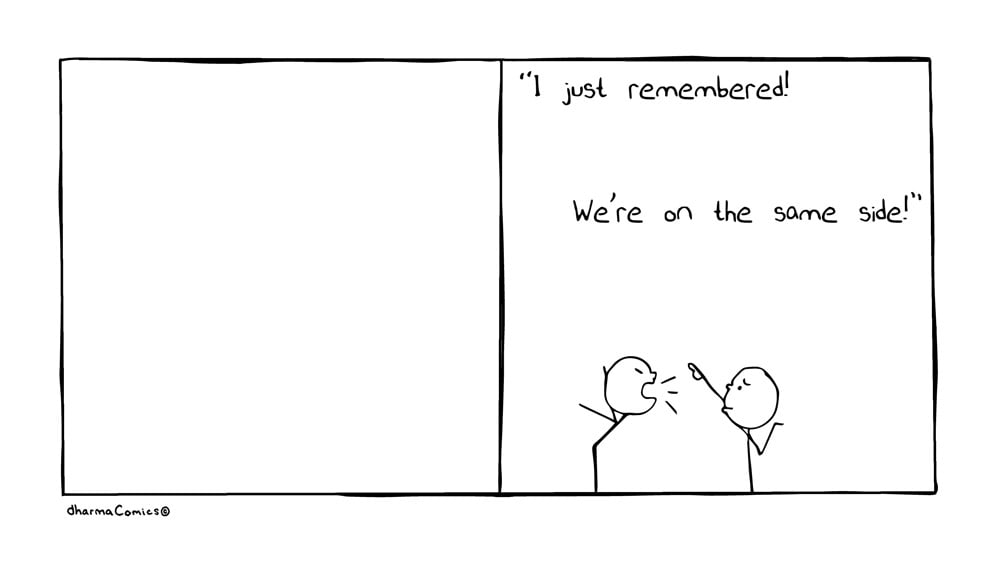Blog Posts
Fight Without Right

Last week, Vince and I attended a week-long retreat at a stunning farmhouse in Quebec, Canada, just north of the Vermont border. We were there to practice The Work of Byron Katie, led by some of my favorite facilitators and friends.
On the second-to-last night the 40+ attendees were spread across the sprawling lawn and throughout the house, participating in tiny spontaneous vignettes.
One group was listening to someone play guitar and sing. Another group was shouting in the distance playing a competitive game of Spike Ball. Some were dancing in the kitchen preparing the huge group meal.
Vince and I sat cross-legged and facing each other, talking, on a blanket spread over the damp grass.
When dinner was ready, someone rang a bell and we all gathered into the house to fill our plates.
I overheard a woman say to Vince, “It was so beautiful to see you two out there connecting like that.”
He smiled. “We were fighting.” He said. I laughed. It was true.
The Work had brought up some longstanding stuff between us and the feeling that night was of being at a hopeless impasse, like two people equally matched in a game of tug-o-war, both tempted to drop our ends of the rope and go our separate ways.
“What!?” She said. “I have never seen fighting that looked like that!”

So I told her how it came to be. The story is something like this:
In the first two years of our relationship, I would get so frustrated with Vince. I would bottle my feelings, try to let them go, see the other side, or rise above my judgments. But really I was stuffing them down until an unguarded moment: exhaustion, alcohol, PMS, or overwhelm would weaken my defenses and my accusations would come out, always high-pitched and whiny, righteous, accusatory, and superior.
The response from Vince was always the same: defensive, distrustful, withdrawn, and eventually he’d just want to be anywhere else.
In our first year together, Vince had told me he’d listen to anything I had to say as long as I wrote it down first. This specifically applied to those moments I was tempted to come at him with guns blazing. He said he’d trust what I was saying more if I took some time to clarify my thoughts and sit with them first before sharing. If it still felt true a day later, he said he’d be happy to read what I had written.
I was skeptical at first, suspecting he was trying to control me and my feelings. But it was a new relationship and a reasonable requisite, so I decided it was worth the experiment. The first time I tried it, I noticed the writing was actually very helpful for me too. I was able to get clear on my complaints and get specific about what I was wanting from him. So after a while, I was in the habit of writing when I was really upset.
While this helped a lot, the content of my writing and the conversation afterwards were still often blamey, demanding, and I was still utterly convinced I was right, he was wrong, and we wouldn’t be ok until he changed.
One day, I noticed I was emotionally boiling. I knew I was on the edge of saying things I’d later regret. “Why?” I wondered. “Why would I regret saying these things, given that I feel so right about them?”
I started writing and I discovered that though I was peeved about some particular content and felt right about my position, what I ultimately wanted was for Vince to change so I could feel more connected to him. I wanted to feel connected.
“Oh crap.” I thought.
In that moment, I discovered that my strategy for getting more connected was actually giving me the opposite result. It always led to him moving away from me, feeling hurt by me, and trusting me a little less each time.
“If I want more connection,” I realized, “I need a new approach.” To my mind, that’s when our fighting changed.

We haven’t stopped having disagreements or differing views at times, hence our fighting at the farm last week. But now we explore these topics respectfully, calmly. We listen to each other, really seeking to understand. We collaborate through differences trying to find the win-for-all that includes both of our perspectives and needs.
Sometimes we reach moments where we’re not sure this is possible, but we keep going, and so far, each time, we have emerged closer, with more of our respective needs being met. “Also,” Vince adds, “we now each emerge stronger from the exchange, rather than weakened or damaged.”
On the drive home from the retreat, Vince and I were recounting how our “fighting” has changed over time. My shift was in realizing I wanted connection and needed a better strategy. I asked him then what his shift had been. “When it feels like you’re coming at me, or trying to change me, I remind myself that you are seeking connection. Even if you’re not doing it perfectly, when I remember that, I can let down my defenses and meet you halfway.” Then he was silent a moment, as he often is, and added, “Having had this positive experience a number of times, I now know these conversations aren’t about trying to change each other, but about finding new ways to look at an issue so that we both end up with a broader perspective and deeper understanding.”


